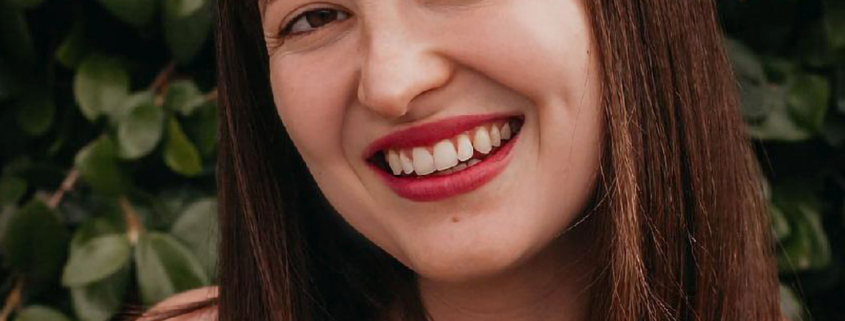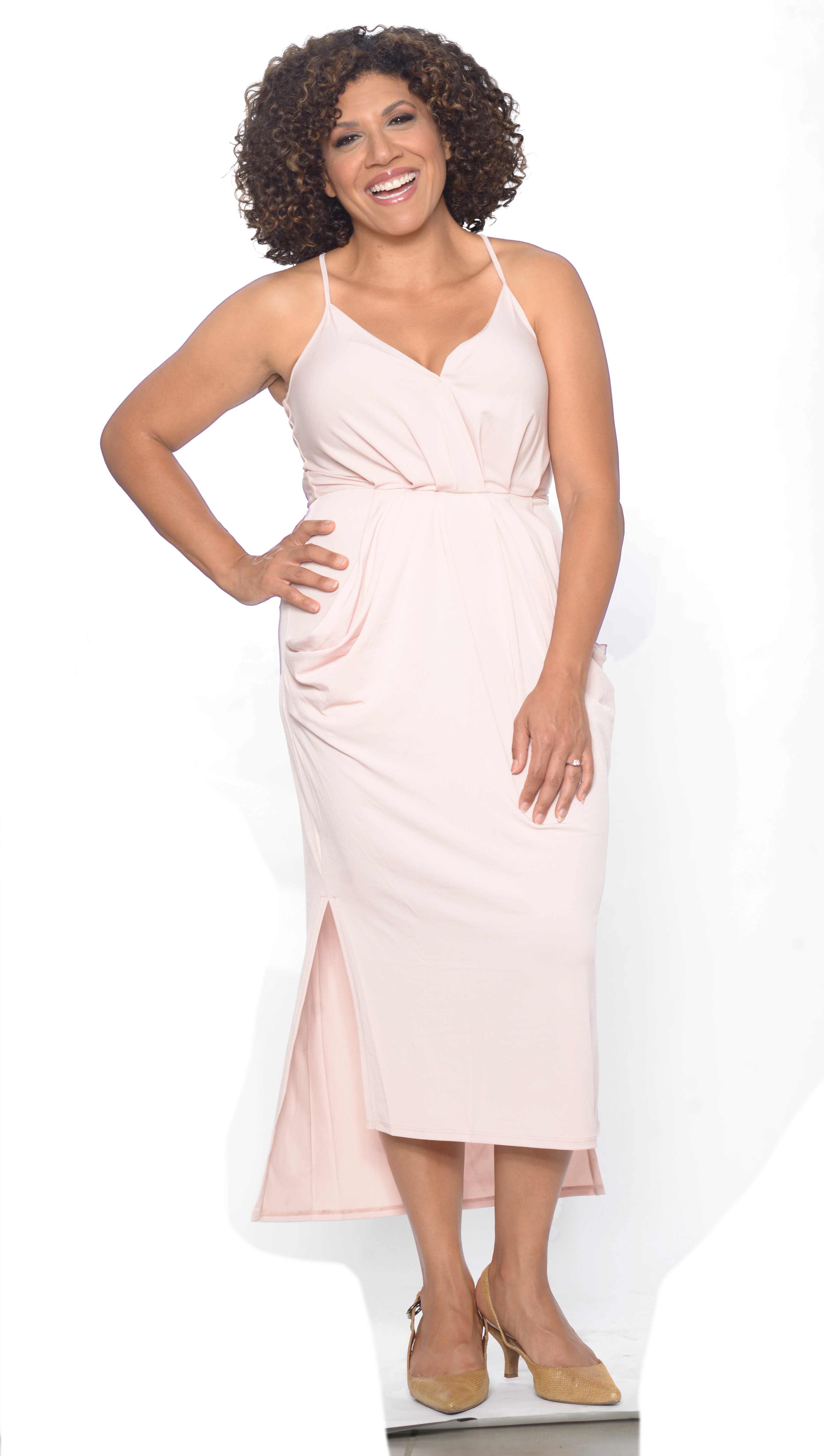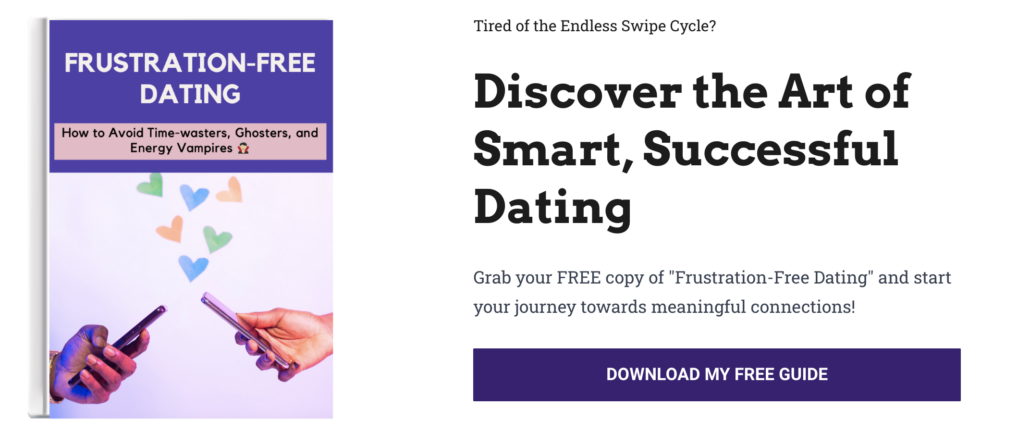Dating with Anxiety & The Newly Single Scene
Many people find the uncertainty experienced in dating and relationships stressful, but is anxiety keeping you from meeting your match?
New York Times Best-selling author Allison Raskin, co-host of the Just Between Us podcast, is here to discuss how coming to understand her anxiety and OCD have helped her to approach dating from a new perspective.
DATING DISH (1:25)
The opposite of jealousy:
What is the opposite of jealousy? Well according to Psych Central, it’s a feeling called compersion. To give y’all a definition, compersion is our wholehearted participation in the happiness of others. It is the sympathetic joy we feel for somebody else, even when they’re positive experience does not involve or benefit us directly. Thus, compersion can be thought of as the opposite of jealousy and possessiveness. To add some historical context, this term was first coined by the Karissa Commune in San Francisco, which was actually a polyamourous community! This new definition was meant to encapsulate the feeling that you got when you saw your partner with another partner, and made you feel joy rather than jealousy. The article addresses a question you’re probably wondering – is it possible for monogamous people to feel compersion as well? And it definitely is! Monogamous couples may already be experiencing joy for their partners through experiences such as their close friendships or work wins.
Damona suggests that compersion may actually be an opportunity to visualize the kind of partner we want to be in a relationship with, and how we want to feel when we’re with them. Turning your feelings of jealousy into compersion could also act as an opportunity to experience a stronger feeling of connection and oneness with your partner. Psych Central gives some tips on ways to practice compersion in your relationship. The first tip, although counterintuitive, is to acknowledge your feelings of jealousy instead of pushing them away – when you first recognize that the feelings are there, it relieves any tension or judgment you may have around experiencing jealousy in the first place.
Another suggestion of accessing compersion is to practice it first in non-romantic relationships. Practice compersion when a family member or friend is experiencing joy. And if you are having a hard time shifting your feelings of jealousy to joy, not to worry – the article states that it is definitely possible to feel compersion and jealousy at the same time. Regardless, keep an open mind to how practicing compersion may help you find greater compassion for your romantic partner, as well as every other relationship in your life.
Ready to find your match? Let Damona help you out with the free Profile Starter Kit to get you online easily and on to your dating success story. Get yours for free at HERE!
ALLISON RASKIN (9:48)
Damona sits down with Allison Raskin, New York Times bestselling author and co-host of the Just Between Us podcast.
Allison is the author of “Overthinking About You: Navigating Romantic Relationships When You Have Anxiety, OCD, and/or Depression.” Additionally, she has developed shows with FX, Netflix, MTV, YouTube Red and 20th Century Television.
(10:52) A hard time with uncertainty:
Before writing her book, Allison was truly surprised that a book hadn’t yet been written on the experience of what it’s like to date with anxiety and OCD. She recounts that mental health has always been a prevalent part of her life, since she was diagnosed with OCD at four years old. “I don’t think I’ve recognized how my anxieties and my different mental health struggles made dating really hard. I think I really viewed them as two separate things that I have mental illness. And also, I’m bad at dating.” Allison shares that the uncertainty of dating was the most challenging part. She felt stuck in this loop of forever trying to lock things down, trying to define what things were and trying to get reassurance that the relationship was leading somewhere. So when she began dating in a healthier way, she felt extremely curious that this kind of change was possible. One of Allison’s missions in her book is to address the changes you can make to date in a healthier way.
(15:08) When is the time for intervention?:
Allison explains that in order to date in a healthy way, you have to be in a stable enough place to do so. “There have been times in my life where I’ve just not been stable enough to date. And that didn’t stop me from dating, and then it was a disaster. But I think the ability to really check in with yourself is important.” Be sure to keep tabs on yourself, and your reactions to different dating scenarios. For instance, Allison mentions that if your date were to cancel plans with you at the last minute, there are two very different reactions that could be had. The first is to feel rightly annoyed and shake it off, and the second is to spiral into self-deprecating thoughts. Both of these reactions can help to let you know where your head is at, and how much your external circumstances are affecting your internal reality.
(17:13) The value of diagnosis:
Damona asks Allison about weighing the difference between having anxious thoughts while dating, versus having an actual diagnosis such as Generalized Anxiety Disorder (which Allison has herself). “It’s interesting, because there’s a lot of debate within the mental health community about the value of diagnosis. A lot of people don’t really think there’s much value in diagnosing people. And instead, it’s more important to just work with the individual and their personal symptoms and making their daily life better. The value in diagnosis often gives us a common language and vocabulary. So if I go from one therapist, to another therapist, and I say, ‘I’ve been diagnosed with OCD,’ they have a general idea of what that means.”
So, when is the right time to reveal your diagnosis to your partner or the person you’re dating? Allison expresses that it’s really important to pay attention to what stage you’re at in the relationship versus how long you’ve known the person. “So for some people on a first date, you might dive into some really deep topics. Some people are just naturally more open and vulnerable… And so when you are talking about the more intimate things, then it becomes a little tricky to omit the mental health of it all. But if you’re in a stage of dating where it’s pretty casual, you’re just talking about work friends and what movies you saw, and you haven’t really deep dived into the bigger life stuff, then I don’t think that you need to share it yet… Because it’s not just about ‘Oh god, I’m sharing this thing. I hope that they don’t reject me because of it.’ It’s also how does this person receive this information. It is a great opportunity for you to see if this person is even worth your intimacy and your vulnerabilities.”
(21:58) Is dating with OCD a big deal?:
Dating with OCD or another diagnosis is one thing, but how do you navigate your mental health once you are in a relationship? Allison affirms that if your diagnosis impacts your day to day life, it’s going to impact the day to day life of whoever you’re with. Because of this fact, communicating with your partner is key. “Really understanding the way that your brain works, and then being able to have the language to explain that to another person is uncomfortable, it’s vulnerable. But it’s going to serve you so much. It’s so important to get there.” Letting your partner or date know when you’re struggling can give them the insight to know why you’re reacting the way that you are.
If being very forward with your partner about your diagnosis sounds scary, Allison recommends roleplaying – “If you have somebody in your life that you trust, that maybe already knows this stuff about you, you can have a roleplay conversation with them. When you know that you’re starting to date somebody and you’re getting ready to tell them [about your diagnosis], you can practice out loud with someone else, what you want to say and how you want to say it… Because then in the moment, you have that to fall back on, versus the potential anxiety of not knowing what to say, which will then impact the way that you say it.”
(26:09) From fiancé to boyfriend:
Although Allison is currently living with her new boyfriend, the end of her book includes personal anecdotes having to do with her previous partner, her fiancé to be exact – so what changed? Allison recounts that when she was writing this book, she was living with a different person who eventually proposed to her in May of 2020. “It was basically my dream come true. I’m somebody who has always wanted to be married, always wanted a life partner. And it was also like, ‘Oh, great. I’m writing this book about how to date in a healthy way. And I won, I got engaged! By the time the book comes out, I’ll be a married woman and I’ll be able to speak from a level of expertise I’ve never had before and all this stuff.’” (When writing the book post-proposal, the last chapter had a whole interview between Allison and her ex-fiancé.)
Later that year in November 2020, on a very random night, Allison’s ex told her that the relationship was over, that something was missing. “He didn’t want to work it out, he didn’t want to do anything. He had unilaterally decided that the relationship was unsalvageable. And for an anxious mind, it can be really harmful to try to fill in what is that something. Because then you can start to go, ‘Oh, I’m ugly. They don’t find me attractive anymore. I’m annoying. They think I’m a bad mother. They think that my OCD will ruin his life, like you fill in that blank because they didn’t give you any answers.’ It was very ironic, because I kind of became the first guinea pig of the book’s messaging, where I was able to have this huge heartbreak without also having a mental breakdown. And I remember feeling in my gut, this is so awful. This is so painful, but I know I’m going to be okay.”
(30:42) Leading with optimism:
We won’t spoil all the juicy parts of Allison’s book, but Damona remarks how the last line Allison leaves readers with is “don’t give up on yourself, and don’t give up on love.” Even after having experienced devastating heartbreak, Allison remembers how she made the decision to not let her ex control her life. “If I didn’t start dating again and if I gave up on this lifelong dream of having a partner, then not only was he robbing me of the future I thought we were gonna have together, he was robbing me of any good future I could have for myself. And so I really decided I had to take the power back. And for me, taking the power back meant not letting it prevent me from the type of life I wanted… And so I kind of dove back in [to dating] pretty quickly, because I could tell that if I waited a long time, I was going to be too afraid.”
Allison adds how a big part of moving forward from heartbreak was learning to be okay with the gray, instead of always needing things to be very clearly black and white. “It felt really uncomfortable for me to be dating somebody while I was still in love with my ex-fiancé. That process took a long time, and a lot of the beginning of our relationship was me getting over somebody else. I credit myself for being able to tolerate that discomfort. And I also really, really credit John for giving me the space to do that, and not making me feel like I had to hide my thoughts about it.”
(35:34) Come from a place of love:
Damona asks for Allison’s thoughts on what to do if you are the partner of someone with a diagnosis, and how to best support them? Allison answers with another of the book’s vital themes – you need to be your primary helper, and then your partner is your secondary helper. “When somebody is suffering with these various disorders, I get that you want to help them and you want to be a support system. But for it to be a healthy dynamic, they have to be their own primary helper. If you develop into a pattern where it’s all on you to help them and they’re not doing things to help themselves, that can be really problematic. But if you have a partner who has the language and the ability to say, ‘Hey, I’m noticing that my depression is getting worse. I’m going to go back to therapy, I’m going to start exercising more regularly for the dopamine.’ Then you can say, ‘Great, thank you for telling me. Now I know that the reason that we’ve been off is because you’re off, but it’s not a reflection of how you feel about me. Thank you for that clarity. Let me know how I can support you in helping you get better.’”
Along with being a secondary helper, Allison says that it’s always important to come from a place of love versus accusation. That can show up in many ways, for instance instead of stating your feelings as fact, observing “Hey, I’ve noticed that, it seems like maybe your anxiety is a little more present than it’s been in other times. Does that feel true to you?” Or reminding your partner that they’ve gotten through these episodes before, and they’ve gotten themselves back up.
Check out Alison’s podcast Just Between Us, and you can follow her on Instagram @allisonraskin.
And be sure to order your copy of Overthinking About You, on shelves May 3rd!
DEAR DAMONA (40:05)
Submit your questions on Instagram, Twitter, or Facebook and hear our answers live on the show! Here’s what our listeners asked about this week:
- IG Message from Wanda – Hi Damona! I am a 55 year-old woman who has been permanently separated for the past 9 years from a 28 year marriage. I am interested in dating, but the truth is, I don’t know how. I come across as an extroverted person, I am a portrait photographer and nurse. I married someone from my neighborhood to reduce any challenges in my world. But even more than marrying that way, I stayed in the marriage! Now fast forward, we are in the time of online dating and I have no idea how it works. I meet men and I freeze, I don’t know what to say or do. Please help me, thanks!
DAMONA’S DEALS
- Get your free Profile Starter Kit at DamonaHoffman.com
- Take control of your mental health with 10% off your first month at Betterhelp.com/datesandmates
- Download the OkCupid app for free today!














